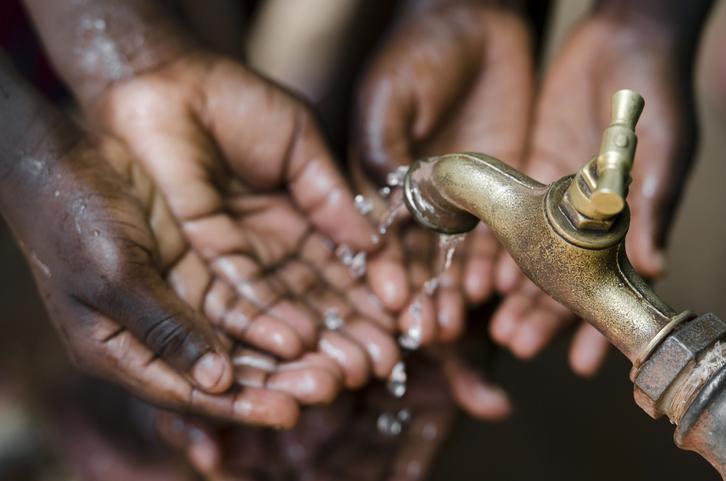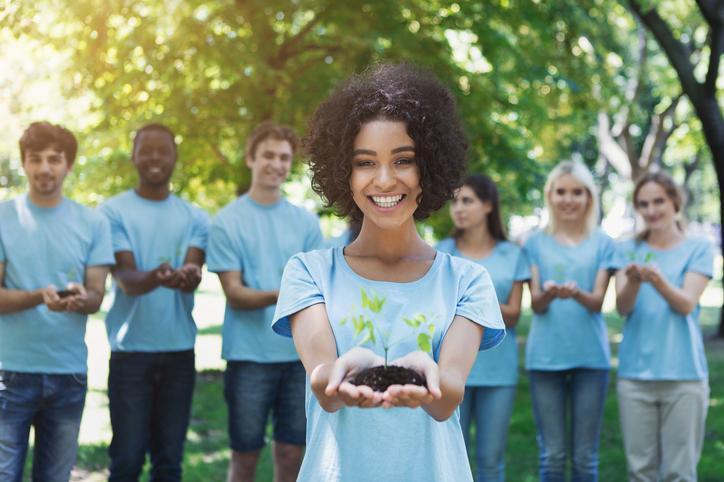How to Protect Nature's Ecosystems


It is easy to feel helpless when it comes to protecting our world's ecosystems. Corporations and industries which pollute and destroy on a large scale can make our own contributions seem pointless. While it is true that individual responsibility will only get us so far in terms of conservation, it is not true that it has no impact. There are over 8 billion individuals on our planet. When every individual changes their habits to be more ecological, it will truly change the world. It is through our combined effort that we will know how to protect nature's ecosystems.
Although lobbying governments and changing business practices are major factors in how to stop climate change and protect fragile ecosystems, thedailyECO shares some practical tips to help save the environment.
How to protect the environment
Environmental protection is a responsibility which we all bear. Modern life has made us consumers as never before, and it is impossible to not consume to some degree. This does not mean we should be wanton in our behaviors, especially when it comes to the world's limited resources.
To help protect nature, we need to ensure we do not deplete it. This means we cannot rely on fossil fuels, we need to limit the amount of energy we consume, and we have to protect the resources our planet needs to thrive. In doing so, we can benefit all members of given ecosystems. If we do not, we humans won't have much left to protect. Here are some of the basic means by which we can protect the environment:
- Save water, reduce its consumption, and reuse it where possible. This includes small things like shutting off the faucet between brushes, as well as larger conservation of water such as finding better ways to irrigate the garden. Moreover, consider rainwater harvesting systems for gardening and other non-potable uses.
- Turn off lights and electronics when not in use. This includes unplugging devices overnight and not charging needlessly. Similarly, consider using smart power strips that automatically cut power when devices are not in use.
- Support legislative changes to stop reliance on fossil fuels and encourage the use of renewable energies. We can also use solar panels on our homes, which not only reduce carbon footprints but also decrease energy bills in the long run.
- Use low-polluting public transport and only drive when necessary. Carpooling with friends or colleagues can also significantly reduce emissions.
- Reduce, reuse, and recycle. Integrating composting into your recycling routine can further minimize waste.
- Consume food responsibly, opting for locally-sourced and organic produce when possible, which supports local farmers and reduces transportation emissions.
- Engage in nature and sustainable tourism activities to know, respect, and conserve biodiversity and ecosystems. Sometimes this means limiting our travel. Furthermore, support tourism operators that prioritize sustainability and conservation efforts.
How to conserve water and energy
You may have heard the phrase ‘think global, act local’ when applied to food. Buying local produce and relying less on conglomerated food industries is definitely helpful in conserving our world's resources. We can also apply this mindset to many different areas of our lives. It is especially important when we think of the amount of water and energy we use.
For example, many of us take it for granted that we have clean water and an endless supply of electricity. There are parts of the world where clean water is scarce, and one source claims that 40% of the world does not have access to clean fuels for cooking[1]. By reducing our impact in the places with more, we can help those with less. Here are some practical tips to do so:
- Shut off faucets when not using water, even between brushing your teeth. Additionally, consider installing low-flow faucets and showerheads to minimize water wastage.
- Shower instead of bathing. For even more savings, try to keep showers under five minutes.
- Reuse domestic water where possible and sanitary, like using greywater for irrigation.
- Make the most of the hours of sunshine and do not turn lights on needlessly. Incorporating skylights or larger windows can help maximize natural light.
- Use low energy light bulbs, such as LED bulbs, which last longer and consume less electricity.
- Do not leave electrical devices plugged in when not in use, as they can still draw power. This phantom load can account for a significant portion of household energy use.
- Use public transport, cycling, and walking, and take the train instead of the plane whenever possible. Encouraging the development of pedestrian-friendly cities can also make these options more viable.
- Encourage the use of renewable energy as opposed to fossil fuels. Advocacy for clean energy initiatives can help facilitate this transition on a larger scale.

Reduce, reuse and recycle - the three ‘Rs’
The famous initiative of the rule of the 3 Rs of ecology was proposed by the environmentalist NGO Greenpeace. It has since been spread around the world, becoming a maxim that is applied to larger societies, as well as the individual. For those of us who want to know how to protect nature, the three Rs are a basic guiding principle. Here are some practical ways we can apply it to our everyday lives:
- Reduce: we must reduce our overall consumption of resources, something which involves our obligation to choose sustainable and responsible consumption. We also need to encourage the purchase of ecological and low-mileage products, as well as reduce the consumption of meat in our diet. Buying products which use less packaging is important. We also need to promote sustainable fashion, buying new items only when we really need them. Reduction of the emission of different types of pollutants in nature is done by avoiding the use of aerosols and fertilizers, among other harmful chemicals. Furthermore, consider digital alternatives to reduce paper waste, such as e-bills and digital note-taking.
- Reuse: give a second life to everything you buy. Sometimes this requires us to repair or modify them, allowing them to continue to be used. A big, but complicated part of this is to fight against the planned obsolescence of many electronic products. Additionally, engaging in community swap events can help maximize the life cycle of items.
- Recycling: it is also necessary to develop daily recycling habits for all kinds of materials. This includes things we can recycle ourselves, such as oil and paper, but we also need to recycle products at local recycling stations. These include batteries, light bulbs, ink cartridges, pharmaceutical materials, and electrical appliances, as well as the elimination of waste paper, cardboard, packaging, and glass in the appropriate containers. Remember to opt for composting to avoid the emission of harmful gases from incineration when non-biodegradable waste is treated in landfills. Moreover, advocating for improved recycling infrastructure in your community can enhance the effectiveness of these efforts.
Respect and conserve species and ecosystems
Environmental education brings us closer to the essential values for loving and respecting nature. We can only do this through knowledge, appreciation, and conservation of each of various ecosystems and the individuals which live within them.
We have busy lives, but many of us are able to take advantage of our free time and holidays to carry out activities which help protect nature. This can include volunteering, as well as simply learning how ecosystems work. We can also engage in sustainable tourism through visiting natural parks, biosphere reserves, and protected areas, as well as nature reserves and botanical gardens. Participating in citizen science projects can also contribute valuable data for conservation efforts.
Wherever you go, you must put in place certain actions to conserve and respect ecosystems, animals, and plants, such as:
- Do not cause fires and do not throw your cigarette butts in nature. Be aware of fire safety guidelines, especially in dry seasons.
- Do not uproot plants and above all do not alter natural ecosystems. Respect the natural landscape and its inhabitants by sticking to marked trails.
- Do not mistreat animals and do not refuse to participate in activities related to animal suffering. Support ethical wildlife tourism that prioritizes the welfare of animals.
- Participate in environmental activities such as collective reforestation, garbage collection on beaches and trails, etc. Joining local conservation groups can amplify these efforts and foster community engagement.

Why protect nature?
We must remember that nature can survive without our presence, but we cannot survive without nature. Changing our behavior is not something we do to make ourselves feel better. It is simply the appropriate response to an emergency situation. It is only through change that future generations will be able to survive and enjoy a healthy planet.
All species on the planet are like pieces of a puzzle that fit together perfectly through mutually beneficial ecological relationships. We must fight for the protection of all species and all ecosystems that exist in nature. We have in our hands the option to live in harmony with nature and not to upset the balance in which all life on our planet holds itself. If we don't choose this option, everything that has required millions of years of evolution can be destroyed in a few decades of irrational human exploitation. It is crucial to understand that biodiversity loss not only impacts individual species but also disrupts entire ecosystems, affecting their ability to provide essential services such as clean air, water, and food. The stakes are high, but with collective action, we can foster a sustainable future.

If you want to read similar articles to How to Protect Nature's Ecosystems, we recommend you visit our Environment (other) category.
1. Ritchie, H., Roser, M., & Rosado, P. (2022). Access to Energy. Retrieved from: https://ourworldindata.org/energy







